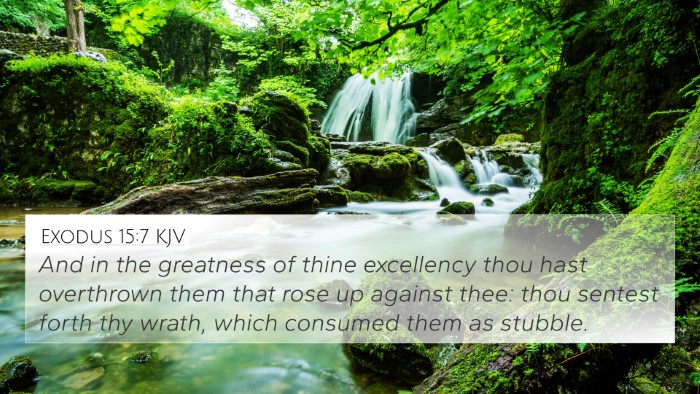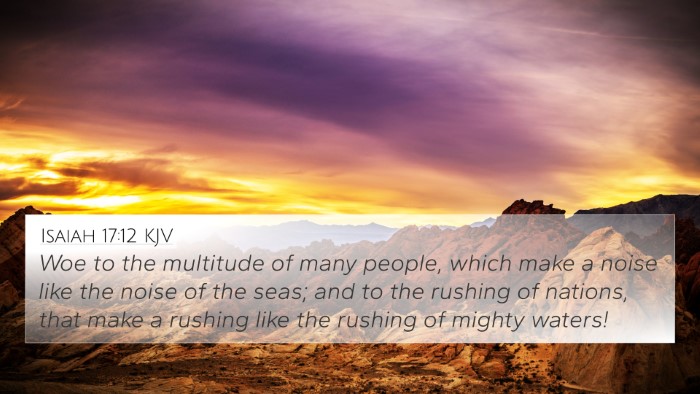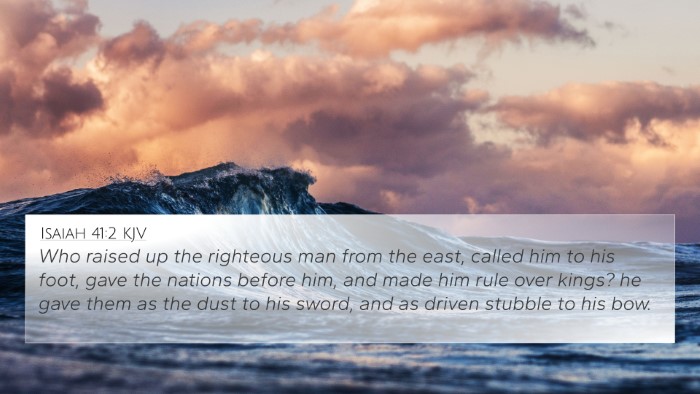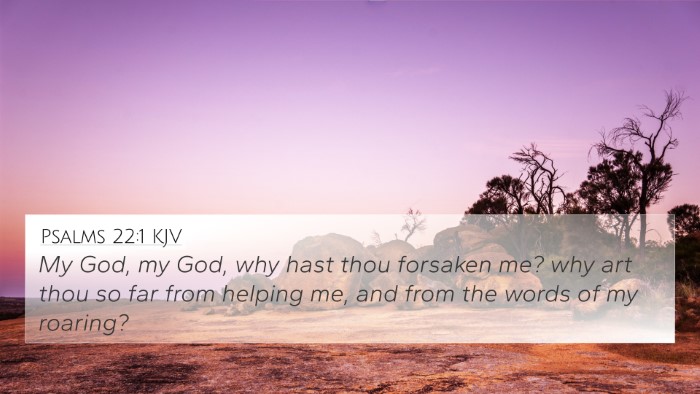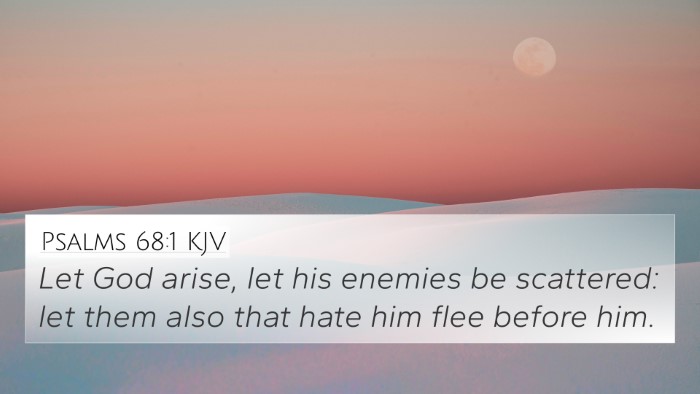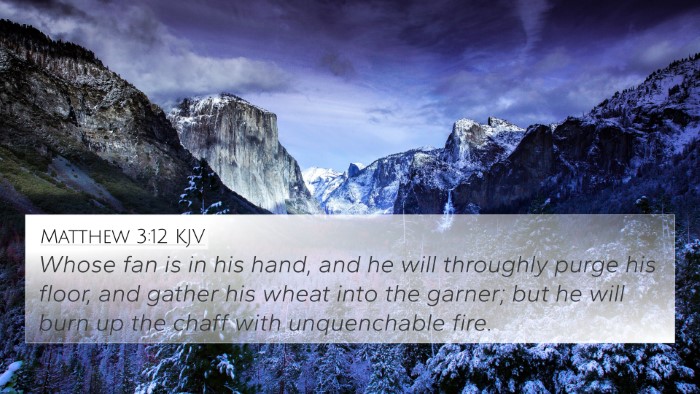Psalms 83:13 - Commentary and Meaning
Psalms 83:13 states: "O my God, make them like a wheel; as the stubble before the wind."
This verse is rich in metaphorical language, illustrating God's power and the futility of those who oppose Him. The imagery of a wheel and stubble emphasizes the transient nature of human opposition compared to divine sovereignty.
Summary of Insights from Public Domain Commentaries
The following insights from various commentators enhance our understanding of this verse:
- Matthew Henry notes that the metaphor of a wheel suggests instability and lack of direction, likening the enemies of God's people to stubble that is easily blown away by the wind, symbolizing their inevitable defeat.
- Albert Barnes comments on the idea of the "wheel," interpreting it as a representation of turning and cycling, which reflects how the plans of adversaries will eventually turn against them.
- Adam Clarke emphasizes the concept of divine intervention, suggesting that when God acts, His enemies will be made to disappear like chaff in the wind, highlighting His sovereign control over all affairs.
Thematic Analysis
The themes of divine protection and judgment emerge from this verse. It draws parallels with other scriptures that speak of God's ability to thwart the plans of the wicked:
- Isaiah 17:13: "The nations will roar like the roaring of many waters; but he will rebuke them and they will flee far away." This verse echoes the idea of God's power over the tumult of nations.
- Psalm 1:4: "The ungodly are not so: but are like the chaff which the wind driveth away." Here, the image of chaff connects closely with the stubble in Psalms 83:13.
- Proverbs 10:25: "When the whirlwind passeth, the wicked is no more: but the righteous is an everlasting foundation." This reinforces the notion of temporary versus eternal outcomes based on righteousness.
- Luke 3:17: "Whose fan is in his hand, and he will thoroughly purge his floor, and will gather the wheat into his garner; but the chaff he will burn with fire unquenchable." This New Testament reference draws a direct connection between this theme of divine judgment and the ministry of Jesus.
- Matthew 7:26: "And everyone who hears these words of mine and does not do them will be like a foolish man who built his house on the sand." This illustrates the instability of those who oppose God's will.
- Job 21:18: "They are like straw before the wind, and like chaff that the storm carries away." This reinforces the depiction of the wicked's vulnerability in the face of God's authority.
- Galatians 6:7: "Do not be deceived: God is not mocked, for whatever one sows, that will he also reap." This provides a moral framework confirming the eventual downfall of the wicked.
- Revelation 19:15: "From His mouth comes a sharp sword with which to strike down the nations, and He will rule them with a rod of iron." This emphasizes Christ's authority over all nations, consistent with the overarching theme of God's ultimate control.
Cross-Referencing Biblical Texts
Understanding Psalms 83:13 can greatly benefit from cross-referencing. Tools that provide cross-references can enhance one's study of the Bible:
- Bible Concordance: A comprehensive listing of verses that aids in locating themes and words across scripture.
- Bible Cross-Reference Guide: Guides that list related verses for deeper study and understanding.
- Cross-Reference Bible Study: Methods employed by students of the Bible to explore interconnected themes and ideas.
- How to Use Bible Cross-References: Learning how to find and apply cross-references enriches personal study and teaching.
- Comprehensive Bible Cross-Reference Materials: Resources that compile extensive references for thorough examination of scriptural links.
Identifying Connections between Bible Verses
When examining Psalms 83:13, scholars can identify significant connections with other verses as well. A detailed cross-reference between Gospels or themes in the Old and New Testament enhances our understanding:
- Comparative Study of Pauline Epistles: Understanding the principles of judgment and divine sovereignty in Paul’s writings gives new insight into the verse.
- Cross-Referencing Psalms with New Testament Teachings: Such a study reveals the continuity of God's character across both Testaments.
- Links between the Prophets and Apostolic Teachings: This highlights the enduring nature of God's messages through time.
- Interpreting Biblical Themes through Cross-References: This approach allows for a richer understanding of God's justice and righteousness as shown in Psalms 83:13.
Conclusion
In summary, Psalms 83:13 serves as a powerful reminder of God's omnipotence, especially in the face of opposition. Through the combined insights of esteemed commentators and the rich tapestry of connected scriptures, readers can gain a deeper appreciation for the themes of judgment and divine sovereignty. Utilizing tools for Bible cross-referencing can further enhance one's ability to discover the interconnectedness of biblical texts, making scripture study a deeply enriching experience.








